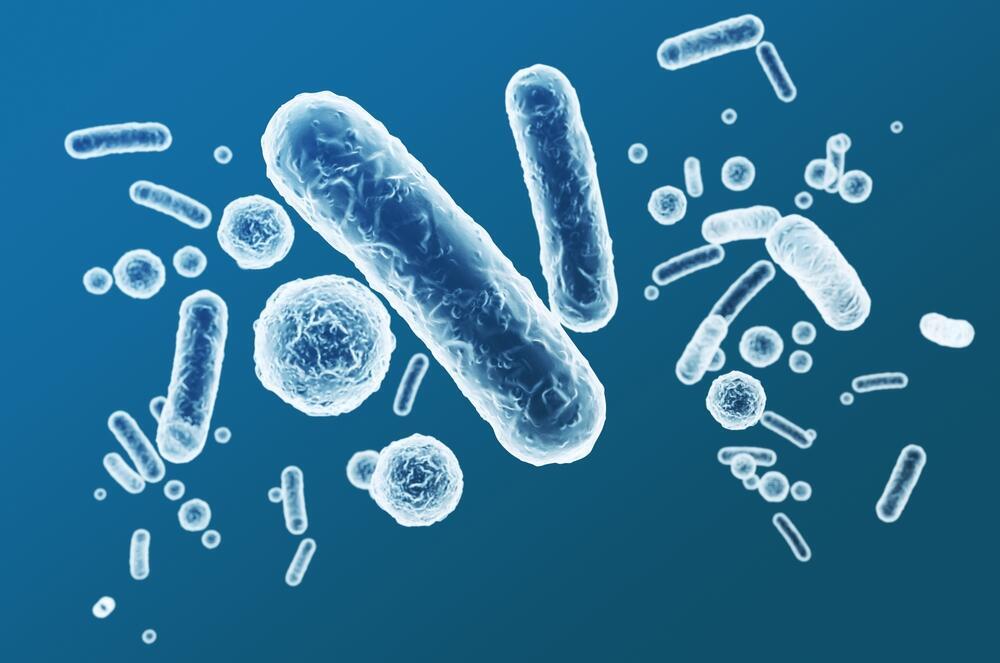Getting your Trinity Audio player ready...
Microbiomes can predict the likelihood of developing post-traumatic symptoms, according to a study conducted by Prof. Ruth Feldman from Reichman University. The team "sought to outline the microbial signature of post-traumatic stress disorder (PTSD)" in mothers and their children. "Our findings can serve as a basis for developing microbiome-targeted therapies."
Israeli research conducted among children and mothers from Gaza border communities over 15 years demonstrates, for the first time, that the microbial signature can predict the likelihood of developing post-traumatic symptoms in humans. The study was conducted in a sample of 168 children and 168 mothers from southern communities adjacent to Gaza, who have been subjected to rockets for decades. and it is the first to successfully link specific characteristics of microbiome composition to the development of post-traumatic disorder from infancy to adulthood, in contrast to psychological resilience.
As part of the follow-up, PTSD (Post-Traumatic Stress Disorder) diagnosis was conducted for both children and mothers by physicians throughout the study, from early childhood to the end of adolescence. The findings indicate that a reduced diversity of microbiomes, which points to the immune system's resilience, differentiated between children with post-traumatic disorder and those resilient, even though both groups were exposed to the same terror threats throughout their lives.
For example, Tomer, 17, was followed by researchers from the age of two until the age of 17. He was a sensitive baby, quick to cry, woke up every night screaming, had difficulty calming down, avoided tasting new foods, and feared physical contact. A relatively calm child turned into a toddler with frequent anger outbursts. He showed regression in various acquired skills. He started bedwetting again, stopped speaking in full sentences, and only uttered single words, as well as turned his playtime into simply throwing objects.
Tomer's chronic disorder manifested throughout childhood and adolescence. At each point in time, Tomer was diagnosed with post-traumatic symptoms and at several times, diagnosed with anxiety disorder. He did not make friends, cried frequently, had difficulty calming down or leaving the house, struggled with simple academic tasks, and became introverted.
Tomer's post-traumatic disorder was expressed through a specific microbial signature showing an increase in certain microbial groups associated with stress, anxiety, and depression, and a decrease in other microbial groups important for normal functioning.
In contrast, Sharon, who also grew up in Gaza border communities right across Tomer, joined the study at the age of two, showing a resilient profile. Sharon was an alert, joyful child who was not diagnosed with PTSD, anxiety, or any behavioral disorder. The family encouraged him to volunteer, and he grew up to be a socially functional teenager, a youth movement counselor, and an amateur musician.
Cross-species study proves connection
Feldman's study included transplanting a PTSD-corrupted microbiome in healthy mice to prove the connection between the microbiome and post-traumatic symptoms. Following the transplant, the mice showed anxious behavior, characteristic of PTSD. Feldman's "multigenerational, longitudinal, cross-species study embedded within a unique context of chronic trauma marks the first integrative attempt to describe the gut microbiome's role in the development of PTSD."
The study followed "mother-offspring dyads from a zone of chronic war-related trauma and a matched non-exposed region over 15 years to determine involvement of the trauma-exposed microbiome in post-traumatic illness and examine whether microbial synchrony among cohabitating genetically-related individuals may be implicated in the pathophysiology of PTSD."
The findings on the decreased microbial synchrony among mother-child pairs in cases of PTSD "can be of assistance in the classification of the disorder. The early identification of youth at greater risk in the face of trauma has been a key issue in medicine, public health, allocation of government resources to trauma-stricken regions, and the recruitment of young adults into positions that involve hazards, such as police, military, fire-fighting, or emergency medicine and our findings may contribute to the formation of microbiome-specific tools that can distinguish the post-traumatic from the resilient profiles in trauma-inducing contexts."
The research was conducted in collaboration with three laboratories, including the Center for Development Social Neuroscience at Reichman University, The Institute for Microbiome Research headed by Professor Omry Koren, and the Laboratory for Applied Mathematics headed by Professor Yoram Louzoun at the Multidisciplinary Brain Research Center at Bar-Ilan University. The research involved Sondra Turjeman from Bar Ilan University, Oshrit Shtossel from Bar-Ilan University, Orna Zagoory-Sharon from Reichman University, Lelyan Moadi from Bar-Ilan University and Karen Yirmiya from Reichman University.





